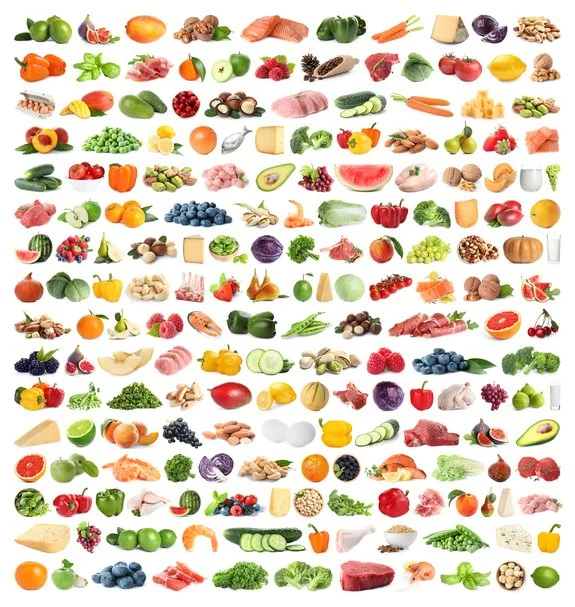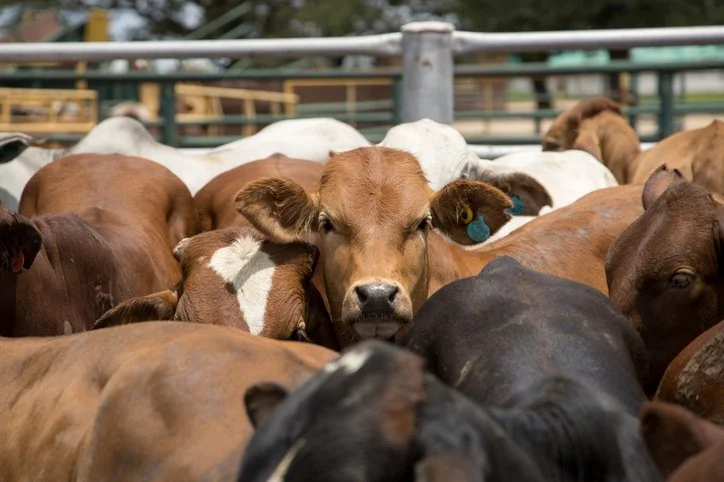The Basic Healthy Human Diet In One Sentence
Quite often, I speak about human nutrition in very specific ways. While potentially helpful, the overall impact of my message can get lost in the details. However, I do have a basic stance on human nutrition that is one sentence long aimed at encapsulating my core beliefs that goes like this:
Eat a whole food diet devoid of processed carbohydrates and seed oils that includes animal-based food with its fat
My basic philosophy allows for every approach except for veganism while providing the most bang for the buck. Keep in mind that I did not invent this way of eating because it echoes the renaissance of ancestral eating habits and is aligned with a growing body of scientific scrutiny and empirical evidence. This post will highlight the basic science behind my statement.
Unpacking the Whole-Food Philosophy
A whole-food diet centers around consuming foods in their natural state, with an emphasis on fruits, vegetables, nuts, seeds, and animal-based products. These foods are rich in essential nutrients, including vitamins, minerals, and antioxidants, that are crucial for optimal health.
The Processed Carbohydrate Conundrum
Processed carbohydrates are commonly found in modern diets, but their impact on health is a contentious topic. These carbohydrates are usually in the form of flours made from grains, sugar, potato and tapioca starches, and high fructose corn syrup. Refined grains and sugars, which have been stripped of fiber and nutrients during processing, have been linked to various health issues, including metabolic syndrome, obesity, type 2 diabetes, and cardiovascular disease. The main reason people avoid processed carbohydrates is that they tend to raise blood sugar levels, which can lead to insulin resistance over time. This can be a significant factor in the health issues mentioned above. Furthermore, humans have not consumed grains for most of our time on earth, and archaeological evidence suggests that tooth decay, gum disease, and heart disease began with their introduction. For more information, please refer to this post.
Seed Oils Under the Microscope
The widespread use of industrial seed oils, such as soybean, corn, and canola oils, is a fairly recent development that started in the early 20th century. These oils, which have a high content of omega-6 fatty acids, are extracted using methods that involve high heat and chemical solvents. This raises questions about their oxidative stability and potential health implications. An imbalance in dietary omega-6 to omega-3 fatty acid ratios, heavily skewed towards omega-6 due to the use of these oils, is associated with chronic inflammation. Chronic inflammation is considered a root cause of various chronic diseases. For more information, you can refer to this post.
The Case for Animal-Based Foods and Fats
Animal-based foods, which include meat, fish, eggs, and dairy, are an excellent source of nutrients. They contain high-quality protein, essential fatty acids, and vitamins (such as B12 and D3), as well as minerals (like iron and zinc) that are more easily absorbed than plant-based alternatives. Furthermore, animal fats, which were previously condemned, are now being reconsidered. Saturated and monounsaturated fats, which are abundant in animal products, are now recognized for their role in maintaining cellular integrity and energy metabolism without the direct link to heart disease that was once assumed. See this post for more information.
The Ecological and Ethical Dimensions
Embracing a diet that heavily relies on animal products can have ecological and ethical implications. A growing number of people are now aware of the environmental impact of conventional animal farming and, therefore, are turning towards more sustainable and humane practices. This includes supporting locally sourced, pasture-raised, and grass-fed options, which not only have a lower environmental impact but also offer nutritional benefits, such as higher levels of omega-3 fatty acids and antioxidants. See this post for more information.
Navigating the Dietary Shift
Transitioning to a whole-food diet, especially one that includes animal-based foods and fats, requires careful selection of food sources, an understanding of nutritional content, and awareness of our bodies' responses to food.
Practical Steps to Get Started
Educate Yourself: Delve into the science behind whole foods and the impact of processed foods and industrial oils on health.
Shop Smart: Prioritize fresh, unprocessed foods. When possible, choose organic, free-range, and grass-fed animal products.
Read Labels: Better yet, avoid labels, but if you do purchase food in a package, be vigilant about ingredient lists. Avoid products with a long list of unrecognizable ingredients, especially those high in refined sugars and seed oils.
Cook at Home: Preparing your meals allows you to control the quality and composition of what you eat.
Conclusion
We should recognize that our government's diet recommendations have resulted in unsustainable obesity, diabetes, lower fertility, mental illness, cancer, and lots more. My Plate encourages the overconsumption of processed grains and seed oils, as does the Eat Lancet Diet. The Eat Lancet diet can lead to eating too little protein, which can lead to health issues. It is easy to see why we should reject them. Furthermore, we can quickly get into the weeds when we look at the differences between all of the different diets out there, such as The Mediterranean Diet, The Carnivore Diet, and a host of others. So let's not concern ourselves with which is better. This leaves one option: Eat a whole food diet devoid of processed carbohydrates and seed oils that includes animal-based food with its fat.






